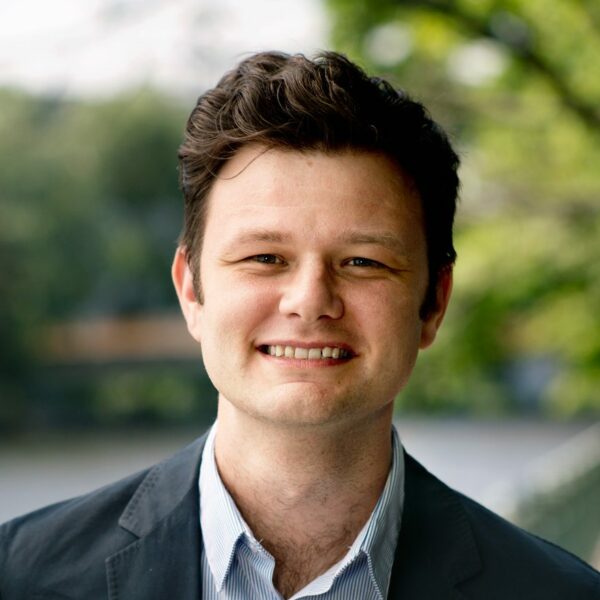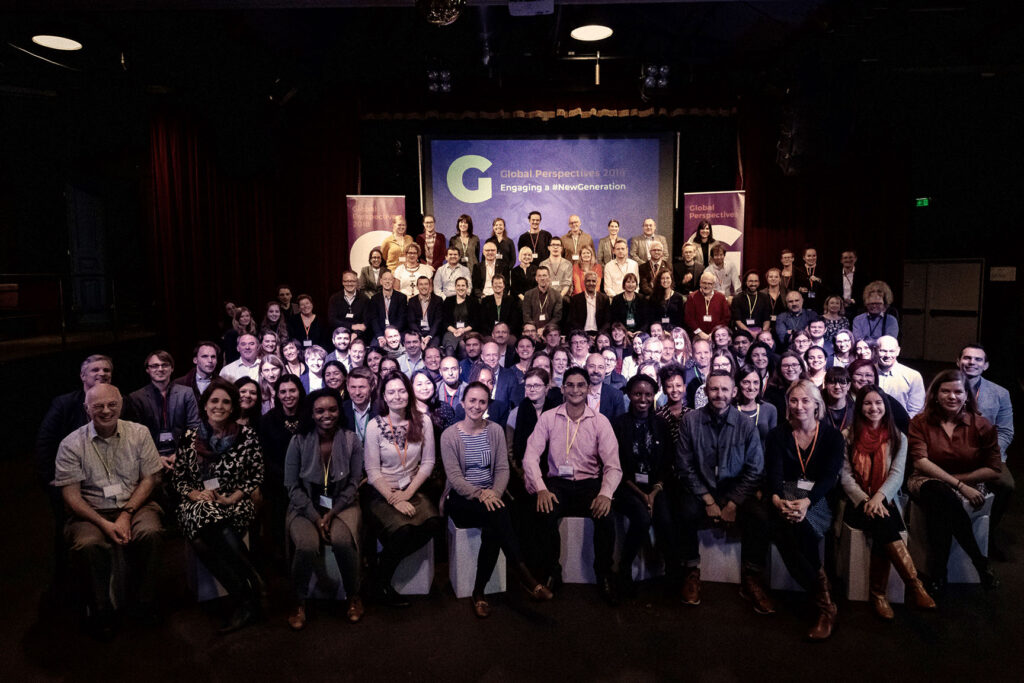
“I think my last word will be, ‘Yes!’ We need to stop saying ‘no’, we need to be positive and change the narrative. So we need to say ‘yes’ to changing things.” The words of Fouzy Mathy, a young woman from SOS Children’s Villages International at Global Perspective 2018.
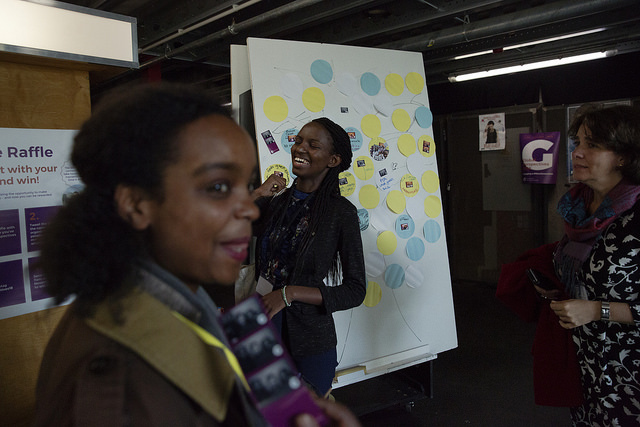
Fouzy, and her ally Divine Usabase also from SOS, unexpectedly took to the stage in the final session when they swapped places with Jennifer Morgan, the Greenpeace International Executive Director, who was on the panel titled “What to do next, with who and how?”. The pair had an answer; we need to unite and make our voices and actions count. Fouzy illustrated what happens when we fail to do so.
She shared the story of a young person who took their own life because they did not feel supported. The young person in question had fled their home country due to conflict and famine caused by climate change. However, after arriving in Europe – somewhere they thought would be safe and supportive – that young person felt so abandoned and insecure that they took their own life.
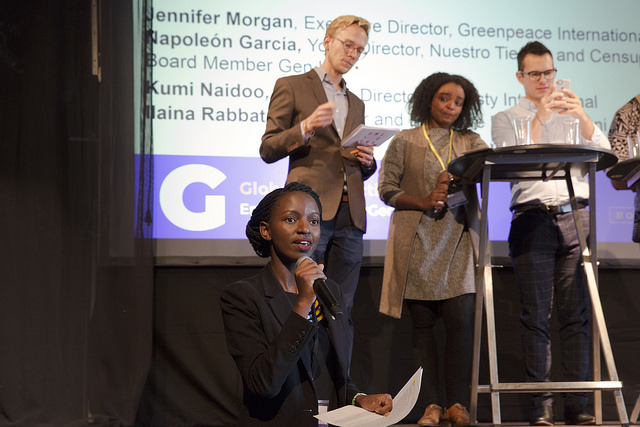
Fouzy told this story as a clarion call of why we need to act together to show compassion and humanity in our work and lives. Their concrete proposal was to create a project called “Yes4Humanity”. The project will engage a wide range of people with causes important to them, sharing personal, powerful, positive stories. There would be one small difference they wouldn’t be the #NewGeneration but a global #NOWGeneration.
Fouzy and Divine’s intervention in the conference was timely. It symbolised the hand over from old to the now generation, in keeping with the spirit and purpose of the event. After all, this kind of changing of the guard was discussed extensively at the event.
Let’s rewind then to the beginning of the event to understand how we ended up here…
Opening: Open the door to young people
The conference opened with Paula Peters explaining how and why it is important to open the door to young people. She challenged everyone to rethink how we should let young people engage us, rather than how international civil society organisations can engage them. This was a call for a fundamental shift in power and control over resources, campaigns and messages and bureaucratic accountability. This will help those young people who already do amazing work.
For example, Anshul Tewari founded Youth Ki Awaaz, India’s largest social justice media platform. It’s the place for young people to make a change in their societies. Additionally, Maha Babeker, a women’s rights activist in Sudan, shed light on how Sudanese young people are speaking out against Gender-Based Violence. These were just two examples of some of the amazing work done by young people.
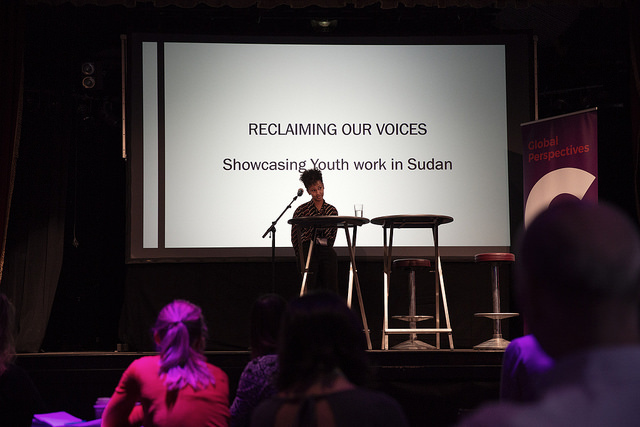
What we wanted participants to get out of the conference
We had a variety of awesome speakers and insightful workshops. When we set out to put this conference together we sat down and thought about what we wanted people to get out of it.
We decided that at Global Perspectives 2018 we wanted to:
- Provide an understanding of how the new generation.
- Showcase innovative initiatives by and for young organisations as well as established CSOs.
- Offer cross-sector networking by bringing together civil society leaders with other stakeholders.
- Explore concrete steps so CSOs can adapt their organisations to better fit the new generation.
Themes: …
To do this we aimed to inspire and showcase cross-cutting content. We chose organisations with three themes in mind:
- Communities: The people we work for and with.
- Supporters: The people who support us, financially or with their time.
- Talent: The people who work in our organisations.
Organisations: …
We wanted you to hear from as many people who represent each theme. We held a mixture of objective focused workshops and open-ended discussions called campfire sessions from the following organisations:
| · Amani Institute | · Talents4Good |
| · Amnesty International | · Telecommunications Software & Systems Group |
| · NetHope | · The Open University |
| · OECD | · The Tahrir Institute for Middle East Policy |
| · OXFAM | · Toladata |
| · Plan International | · Viva con Agua |
| · Restless Development | · WEF |
| · Save the Children | · Youth to End Sexual Violence |
| · SDI Net |
Future Scenario
As if this was not enough, we hosted a Future Scenario track. In these sessions, the participants attempted to identify the characteristics of a CSO 12 years from now that is successful in engaging youth.
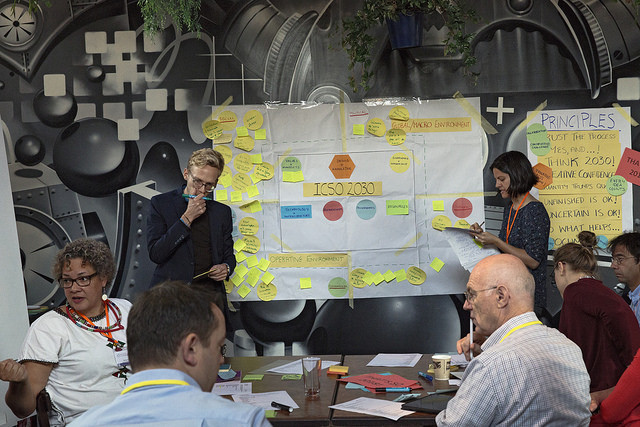
The group predicted a very different global environment of megatrends with great impact and influence on young people. Although only 12 years’ away, there was systemic and rapid change in social and political organisation, technology and data-driven inequality, precarious work/economic situations, and intense climate change, antibiotic resistance and genetically modified food systems.In this context, the successful CSO of 2030 would have characteristics fundamentally different from the mindsets, skills, structures and ways of working today.
Radical and cause-driven, it would be focused on campaigns, advocacy/policy and amplifying what others are doing, with devolved peer-to-peer accountability and consensus decision-making communities both internally and with supporters.
What next for “Yes4Humanity”?
There are several ICSOs keen to take part there will be a kick off meeting next month which the International Civil Society Centre is part of. You can read more about their plan here.
Recommendations
There were many excellent ideas at Global Perspectives, we’ve tried to capture them all in our Outcome document. You can find them under recommendations. You’ll see we have ideas on peer-to-peer learning, developing a youth strategy, including young people’s voices more, be accountable to young people and committing to work together without ‘egos or logos’.
